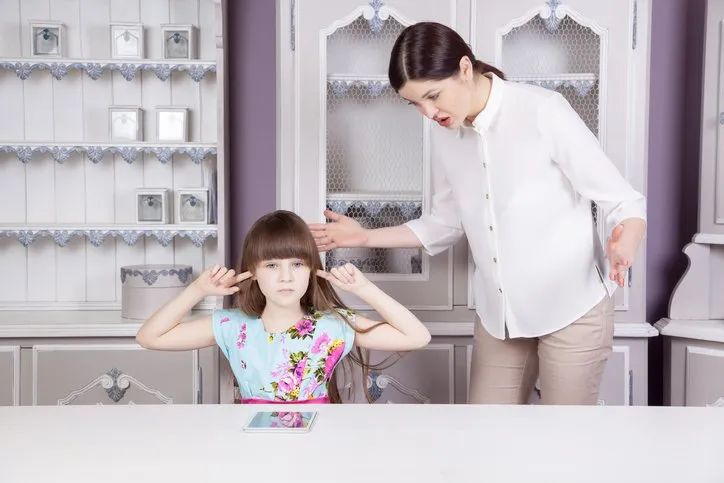Five Ways to Stop Spanking Today
No parent likes to spank, but it can sometimes be hard to know how else to react to our children’s misdeeds. After all, many of us grew up in a “spanking culture,” learning from a very young age that spankings were just the “norm.” Now that current culture steers clear of spanking (and for good reason,) alternative methods of managing the child’s behaviors (and misbehaviors) are more important than ever. Just because today’s parents don’t spank, doesn’t mean we don’t discipline.
By the way, here’s a little food for thought: the word discipline comes from the Latin word disciplina, meaning instruction or knowledge. With that in mind, we see a clearer difference between discipline and punishment. Here are some tips for what to do instead of spanking:
#1 Put a lid on it
 Are the kids pushing you to the point you feel like blowing your top?
Are the kids pushing you to the point you feel like blowing your top?

Are the kids pushing you to the point you feel like blowing your top? Take a moment to depressurize and regain your self-control. Here are five simple but effective strategies to help you stay cool under fire:
- Breathe deeply. When stressed, it is a natural human response to take short, shallow breaths. Stop for a moment and take three to ten slow deep breaths.
- Drink water. Our nervous systems are far more sensitive when we are dehydrated. Stay hydrated to stay calm.
- Pause. Just take a moment to pause and center yourself. Place your hand over your heart; practice this throughout the day. Bonus: it’s good role modeling for children to see you doing this.
“Let us always remember that inner discipline is something to come, not something already present. Our task is to show the way to discipline.” - Maria Montessori
- Think. Bring to mind what you love about the child or a successful experience with the child. This releases positive neurotransmitters to balance out negative brain chemicals produced by frustration and stress. Yes, amazingly we can even self-regulate our own nervous systems.
- Visualize. See the positive outcome in your mind. Practice visualization; it is a very powerful and effective tool and should not be underestimated.
#2 Break through distractions
We’ve all been in the exasperating position of speaking to children who “just aren’t listening.”

We’ve all been in the exasperating position of speaking to children who “just aren’t listening.” We repeat ourselves over and over, getting more angry and frustrated each time. This can make even the most tolerant teddy bear-of-a-parent want to swat out at their cubs. Instead of letting things get to the point where you are wasting your breath (and energy), take a moment to put yourself directly in the child’s focus. Get down on her level. Make eye contact. Now say your piece, and remember to be firm but kind…no growling.
#3 Use logical consequences
Logical consequences are so much more…well, logical as a teaching tool. Logical consequences teach accountability. For example, when my older son broke his little brother’s “master Lego creation,” it would have been swift reckoning to just dole out a spanking and have it done with. But what would he have learned? Certainly, he would have gotten the message not to repeat the same mistake. But would he learn to accept responsibility for his actions? And what if it was an accident, as he so vehemently professed? The lesson would have been for him to deny, defend, and hide his mistakes in the future. Instead, he chose to fix the toy (to little bro’s high standards.) The lesson goes something like this: mistakes happen. When mistakes happen, we take responsibility and make every effort to repair the damage done.
#4 Or slightly less-logical consequences…
But what if there are no really logical consequences? What if, in the example above, the toy could not be repaired? That’s when you get creative and come up with ways to make amends when you can’t make repairs. Involve the child(ren) in this creative endeavor. Perhaps big brother could do little bro’s chores for a few days. Or maybe an especially good deed would help make up for the broken toy.
#5 Give ‘em a head’s-up
Children feel powerless when they have no sense of control over their schedule. Think about how you might feel if you were uninformed about what your day had in store for you. There’s nothing like giving your child zero warning for encouraging a frustration-induced tantrum, which is in turn ultra-frustrating for you. Avoid the whole messy business by making it a habit to let children know what to expect and when. And give them a five (or so) minute warning before it’s time to switch gears.
Above all, we must strive to be mindful of what we are teaching our children through the way we discipline. As Dr. David Pollack, a pediatrician with several of The Children's Hospitals of Philadelphia told CBS News*, “ur goal is to teach kids right from wrong, to have them always engage with others in a positive and productive way, to live by the golden rule. Our society is becoming increasingly violent and angry; we should try to do everything possible to minimize that culture around our children."
* Marcus, Mary Brophy, 5-decade study reveals fallout from spanking kids, CBS NEWS, April 26, 2016, http://www.cbsnews.com/news/5-decade-study-reveals-fallout-from-spanking-kids/




















